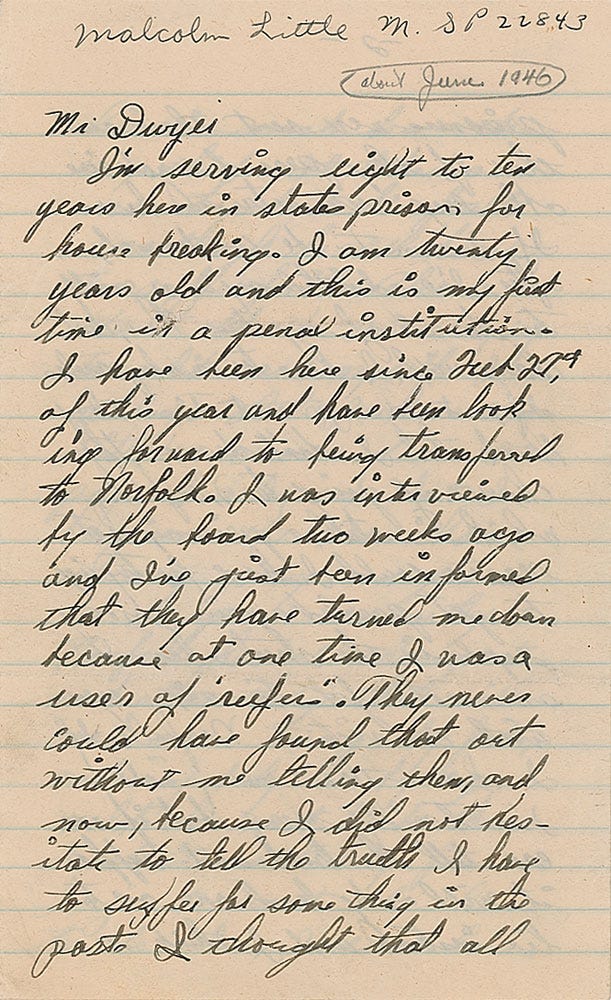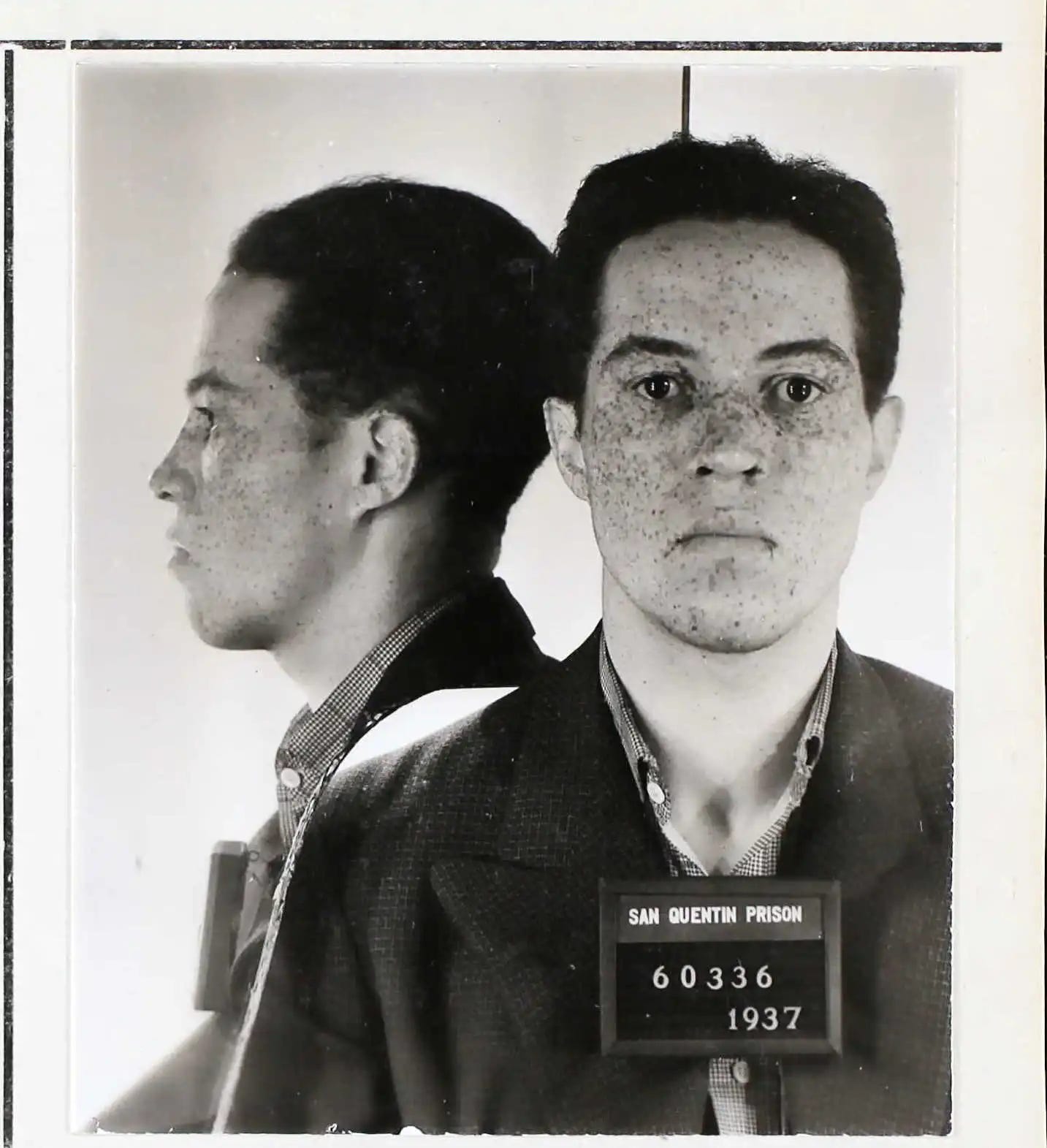Was Bimbi The Main Inspiration For Malcolm X?
A closer look at Malcolm X's life in prison.
The latter years of Malcolm X’s turbulent life saw him travel the globe, delivering speeches at prestigious institutions across the world. These speeches enraptured his audiences, demonstrating his dazzling wit, encyclopaedic knowledge, and prodigious oratory skills. But it was not always the case that Malcolm’s intellectual repertoire and oratory skills were refined to such an extent; in the Autobiography of Malcolm X, he writes:
Many who today hear me somewhere in person, or on television, or those who read something I’ve said, will think I went to school far beyond the eighth grade. This impression is due entirely to my prison studies. It had really begun back in the Charlestown Prison, when Bimbi first made me feel envy of his stock of knowledge. Bimbi had always taken charge of any conversation he was in, and I had tried to emulate him.
Malcolm’s candid confession was not a feigned attempt at modesty; rather, it was a genuine reflection upon the centrality of his prison experience to his intellectual growth, and the crucial role that Bimbi played in this transformation. But who was Bimbi, and how did he come to influence Malcolm X?
John E. Bembry, known as Bimbi in The Autobiography of Malcolm X, was a fellow inmate at Charlestown Prison. Approximately 20 years Malcolm’s senior, Bimbi was a celebrity within prison, with inmates and prison guards often huddling together to hear him discourse on, amongst myriad topics, Thoreau, psychology, and architecture. Bimbi’s formidable intellect garnered the unwavering respect of his fellow inmates and the prison guards. His expansive vocabulary, coupled with his habit of citing sources to substantiate his claims made him a convincing speaker.
But it was more than that. Bimbi’s skill as an orator, his ability to captivate and control the attention of his listeners, left an indelible impression on the young Malcolm. His mastery of rhetoric fascinated Malcolm, who wrote:
he was the first man I had ever seen command total respect...with his words.
Working together in the licence plate shop at Charlestown prison allowed Malcolm to develop closer ties of friendship with Bimbi. Bimbi noticed potential in the young Malcolm, but chided him for his laziness, remarking that he had brains if he would use them. Inspired by the jibe, as well as Bimbi’s recommendation to closely study the dictionary, Malcolm X set out to transform himself into an intellectual powerhouse.
He became a voracious reader, devouring books on all subjects, but particularly those on language, history and philosophy. Les Payne, the author of The Dead Are Arising: The Life of Malcolm X, notes Malcolm’s keen interest in language, dedicating much time to copying out the entire dictionary, as well as closely studying The Loom of Language, the works of Shakespeare, and his purported favourite, Aesop’s fables. Malcolm’s mastery of language, which was honed in prison but manifested many years later, appears to have been inspired by Bimbi’s recommendations.
Recent scholarship however, has highlighted how The Autobiography of Malcolm X exaggerated his illiteracy and poor grammar, and failed to record his positive inclination towards the transformative power of education before he entered prison. In a journal article published in 2017, Jed Tucker analysed prison records and previously unpublished letters of Malcolm X, and found that Malcolm already harboured a desire to educate himself before he met Bimbi. Furthermore, Malcolm’s intense study was not a solitary endeavour; his good friend Jarvis studied alongside him.

That these crucial details were omitted from the Autobiography of Malcolm X perhaps speaks to the desire of either Malcolm X or Alex Haley to make the transformation from street criminal to intellectual appear more pronounced. When Malcolm X set out to write his autobiography, he was still a fervent follower of Elijah Muhammad; indeed, the autobiography was authored in a way to accentuate the impact of Elijah Muhammad on Malcolm’s radical transformation. In the process of recording this transformation, the idea of the illiterate criminal who becomes a savant would appear more remarkable than what the records show.
That Bimbi was not the sole catalyst for transformation of Malcolm X does not diminish his impact. He was certainly a positive role model and played a key role in guiding Malcolm on his intellectual journey. In a time where racism ran rampant and the avenues for success were closed off for black men, Bimbi’s intelligence and articulate speech was the inspiration Malcolm needed to enhance his intellectual endeavours. More than perhaps any other person, Bimbi was responsible for demonstrating to Malcolm the stirring power of words; a power which hurled Malcolm X from the nadir of prison to the highest echelon of public orators in the 20th century.







This mornings read was very intriguing, thanks! I also did not realize Malcom X was 20 when he went to prison!